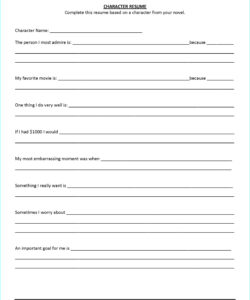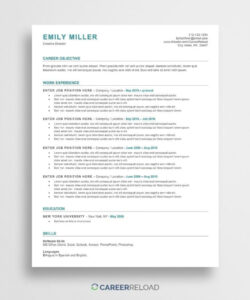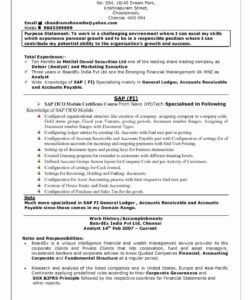Capstone projects are a great way to showcase your skills and knowledge in a particular field. They are often used as a final project for students in college or university, but they can also be completed by professionals looking to expand their knowledge or improve their skills. In this article, we will discuss how to put capstone projects on your resume and why they are important.
Capstone projects are designed to be comprehensive and challenging, and they often require a significant amount of time and effort to complete. They are a great way to demonstrate your ability to work independently, think critically, and solve complex problems. When you complete a capstone project, you have something tangible to show for your efforts, which can be a valuable asset when applying for jobs.
How to List Capstone Projects on Your Resume
When listing capstone projects on your resume, it is important to highlight the skills and knowledge you gained from the project. You should also include any relevant details about the project, such as the topic, the scope, and the outcome. Here are some tips for listing capstone projects on your resume:

- Include the name of the project and the date it was completed.
- Describe the project in a few sentences, highlighting the skills and knowledge you gained.
- Include any relevant details about the project, such as the topic, the scope, and the outcome.
- Use bullet points to make the information easy to read.
- Be concise and to the point.
Here is an example of how to list a capstone project on your resume:
Capstone Project: Developing a Mobile Application
- Completed in May 2023
- Developed a mobile application for a local business
- Used Java and Android Studio to develop the application
- Managed the project from start to finish, including design, development, and testing
- Presented the application to the business owner and received positive feedback
Why Capstone Projects are Important for Your Resume
Capstone projects are important for your resume because they demonstrate your ability to work independently, think critically, and solve complex problems. They also show that you have a deep understanding of a particular subject or field, which can be valuable to employers. When you list a capstone project on your resume, you are telling potential employers that you are committed to your field and that you have the skills and knowledge to succeed.
Capstone projects can also help you stand out from other candidates when applying for jobs. They show that you are willing to go above and beyond what is required, and that you are passionate about your work. When you complete a capstone project, you have something tangible to show for your efforts, which can be a valuable asset when applying for jobs.
Conclusion
Capstone projects are a great way to showcase your skills and knowledge in a particular field. When you list a capstone project on your resume, you are demonstrating your ability to work independently, think critically, and solve complex problems. They are a valuable asset when applying for jobs, and they can help you stand out from other candidates. If you have completed a capstone project, be sure to include it on your resume.
FAQ
What is a capstone project?
A capstone project is a comprehensive and challenging project that is often used as a final project for students in college or university. It is designed to demonstrate your ability to work independently, think critically, and solve complex problems.
Why are capstone projects important?
Capstone projects are important because they demonstrate your ability to work independently, think critically, and solve complex problems. They also show that you have a deep understanding of a particular subject or field, which can be valuable to employers.
How do I list a capstone project on my resume?
When listing a capstone project on your resume, be sure to include the name of the project, the date it was completed, and a brief description of the project. You should also highlight the skills and knowledge you gained from the project, and any relevant details about the project, such as the topic, the scope, and the outcome.


